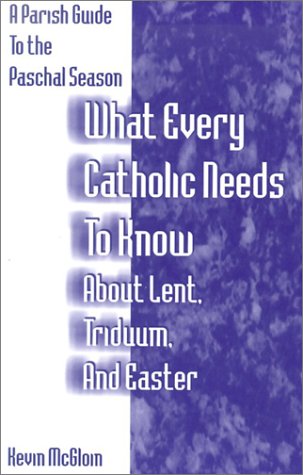
Overview:
In the Gospel reading from John 10:27-30, we encounter a powerful message from Jesus about His relationship with His followers. In these few verses, Jesus offers profound insight into the nature of eternal life, the protection He provides, and His intimate connection with the Father. The text is rich with meaning, and as we break it down line by line, we can explore its deep theological implications and apply its truths to our lives today. This post will provide a detailed reflection on each line of this passage, drawing on additional scriptural references and the Catechism of the Catholic Church to illuminate the message of the Good Shepherd.
1. “The sheep that belong to me listen to my voice.”
At the very start of this passage, Jesus offers us a clear image: that of the sheep belonging to the shepherd. The relationship between Jesus and His followers is not merely transactional; it’s personal, intimate, and built on trust. Just as sheep are known to recognize their shepherd’s voice, so too are Jesus’ followers called to recognize His voice.
In ancient Israel, shepherds had a deep relationship with their sheep. The sheep would follow the shepherd’s voice because they trusted him to lead them to safety and sustenance. This imagery invites us to reflect on how well we listen to Jesus in our own lives.
Listening to Jesus Today
In our modern lives, it may seem difficult to hear the voice of Christ amidst the noise and distractions of the world. However, Jesus still speaks to us today. The voice of Jesus can be heard through prayer, the scriptures, and through the voices of those in the Church who are living out the Gospel.
As the Catechism of the Catholic Church explains, prayer is the “living relationship of the children of God with their Father who is good beyond measure” (CCC 2565). This relationship is fostered through listening for God’s voice in prayer, in quiet moments, and in reflection on His word. Similarly, the more we immerse ourselves in Scripture, the clearer His voice becomes.
Scriptural Reference:
In John 10:27, Jesus identifies the hallmark of His followers: “They listen to my voice.” Jesus also teaches us that His voice is a call to action. In Matthew 11:28-30, He invites those who are weary and burdened to come to Him for rest. Listening to His voice is not just about hearing; it is about responding with trust and obedience.
2. “I know them, and they follow me.”
Jesus’ knowledge of His followers is not a casual acquaintance; it is a deep, personal knowledge. The phrase “I know them” emphasizes an intimate understanding. This knowledge isn’t just about knowing facts; it’s about knowing each person personally and deeply. It speaks of the relationship Jesus has with His flock.
The Intimacy of Christ’s Knowledge
This profound knowledge is not one-sided. Just as Jesus knows His followers intimately, He invites them to know Him in return. The intimacy of this relationship is reflected in the way He guides and nurtures His sheep. The Catechism emphasizes this intimate relationship when it teaches that “God calls each one by name” (CCC 2579). We are not faceless followers to Jesus; we are known individually by Him.
When Jesus says, “they follow me,” He is calling us to respond. Following Him involves a decision to trust Him and walk in His ways. It’s not merely about belief, but also about action. Following Jesus requires a commitment to living out His teachings and example, both in moments of personal devotion and in the way we interact with the world.
Scriptural Reference:
This notion of being “known” by Christ also appears in the Parable of the Good Shepherd in John 10:14: “I am the good shepherd; I know my sheep and my sheep know me.” This is a reminder that Jesus’ relationship with us is not superficial—it is based on a deep, life-transforming connection.
3. “I give them eternal life.”
Eternal life is a central promise of Jesus’ ministry. When He says, “I give them eternal life,” He is not just referring to life after death. Eternal life, in Jesus’ teaching, is a present reality that begins here and now. The Catechism explains that eternal life is “the full and definitive life” that begins in the present life and is perfected in the afterlife (CCC 1025). It is the life of grace, the life of communion with God, experienced in the here and now.
The Promise of Eternal Life
For those who follow Jesus, eternal life is a gift that transcends death. It is a life that is lived in the presence of God, a life marked by peace, joy, and righteousness. This eternal life is not just a future hope, but a present reality that Jesus offers. As He says in John 17:3, “Now this is eternal life: that they know you, the only true God, and Jesus Christ, whom you have sent.”
When we accept Jesus’ invitation to follow Him, we begin to experience this eternal life in our daily lives. It’s a life that is lived in relationship with God, a life marked by His love, mercy, and peace.
Scriptural Reference:
In John 5:24, Jesus further reinforces this idea: “Very truly I tell you, whoever hears my word and believes him who sent me has eternal life and will not be judged but has crossed over from death to life.” The eternal life Jesus speaks of is not merely an abstract concept but a tangible reality that we can experience today.
4. “They will never be lost, and no one will ever steal them from me.”
This powerful statement affirms the security that Jesus offers to His followers. Once we belong to Jesus, we are secure in His care. No external force—no trial, no hardship, and no enemy—can separate us from His love.
The Assurance of Protection
Jesus’ protection of His sheep is total and unyielding. In the face of life’s difficulties and the challenges we face as believers, this assurance of security is a source of profound comfort. The Catechism teaches that God, in His providence, protects and cares for His children, ensuring that nothing can harm them beyond His will (CCC 302).
Scriptural Reference:
This echoes the words of St. Paul in Romans 8:38-39, where he assures us that nothing “will be able to separate us from the love of God that is in Christ Jesus our Lord.” Jesus’ statement that no one can steal His sheep away is a guarantee that His care for us is ultimate and irrevocable.
5. “The Father who gives them to me is greater than anyone, and no one can steal from the Father.”
This statement emphasizes the strength and authority of God the Father. The security Jesus promises is anchored in the authority of the Father. No one can take us from the Father’s hand because He is greater than any other power or force.
The Supremacy of the Father’s Authority
The Father’s power is unmatched, and His authority ensures the security of His children. This is a powerful reminder that our salvation is not dependent on our own efforts but on the infinite strength of God the Father. The Catechism explains that the Father “is the source of all blessings” and that He is “the supreme good” (CCC 268).
Scriptural Reference:
In 1 John 4:4, we are reminded that “greater is he who is in you than he who is in the world.” This speaks to the ultimate power of God in our lives, assuring us that His protection is more powerful than any threat.
6. “The Father and I are one.”
The final line of this passage is one of the clearest declarations of Jesus’ divine nature and His unity with the Father. The Father and the Son are one in essence and in purpose. This unity is at the core of the Christian understanding of God as a Trinity—Father, Son, and Holy Spirit.
The Unity of the Father and the Son
This unity between the Father and the Son is a profound mystery that lies at the heart of Christian faith. The Catechism teaches that the Father, Son, and Holy Spirit are three persons in one God, perfectly united in essence and purpose (CCC 254).
Scriptural Reference:
This declaration by Jesus is not just a statement of their oneness in mission but also in divine nature. In John 14:9, Jesus tells Philip, “Anyone who has seen me has seen the Father.” This is a clear indication of the unity between the Father and the Son.
Conclusion:
In this brief but powerful passage from John 10:27-30, Jesus offers us a profound understanding of His relationship with His followers. He is the Good Shepherd, who calls us by name, knows us intimately, and offers us the gift of eternal life. He assures us of His protection, declaring that no one can take us away from Him because we are secure in the Father’s hand.
This passage speaks not only to those who have been following Jesus faithfully but also to those who may feel lost or uncertain. The invitation to listen to Jesus’ voice, to follow Him, and to experience eternal life is open to everyone. Through a relationship with Him, we find security, peace, and purpose that transcends the struggles of this life.
As we reflect on this passage, let us be reminded of the profound love and care that the Good Shepherd has for us, and let us respond by listening for His voice, trusting in His protection, and following Him on the path to eternal life.





